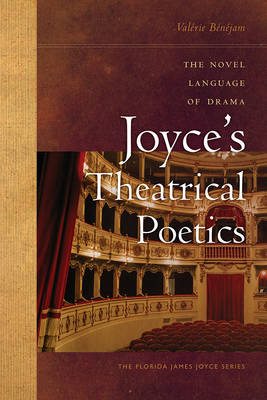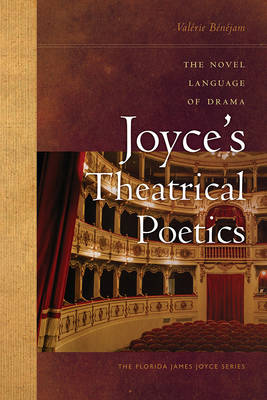
- Afhalen na 1 uur in een winkel met voorraad
- Gratis thuislevering in België vanaf € 30
- Ruim aanbod met 7 miljoen producten
- Afhalen na 1 uur in een winkel met voorraad
- Gratis thuislevering in België vanaf € 30
- Ruim aanbod met 7 miljoen producten
Omschrijving
Looking beyond the view of James Joyce as a failed playwright to uncover how Joyce's modernist breakthroughs are grounded in theatrical techniques
In this book, Valérie Bénéjam argues that the success of James Joyce's fiction lies in its theatricality and examines the role of drama throughout the writer's entire oeuvre. While Joyce's only surviving play, Exiles, was widely considered a failure, Bénéjam demonstrates that Joyce inserted theater and theatricality into his short stories and novels instead, where they became the markers of his specific modernist aesthetics.
Bénéjam identifies a theatrical bent in Joyce's early writings, seen in the minimalist play scripts of the epiphanies. His powerful use of dialogism continues in his early fiction, with Dubliners and A Portrait of the Artist as a Young Man. In Ulysses, Joyce includes theatrical techniques such as soliloquy, dialogue, script, and asides, most evident in chapters like "Circe" and "Penelope." And in his final work, Finnegans Wake, the conflict and crisis that are the essence of drama come to disrupt language at its very core.
Blending biographical elements, close readings of text, and references to the playwrights whose work inspired Joyce, including Ibsen, Shakespeare, Wilde, and Synge, Joyce's Theatrical Poetics moves chronologically to explain how drama, conceived by Joyce as a demand for truth and movement in art, played a key role in his revolutionary disruption of the novel genre.
Specificaties
Betrokkenen
- Auteur(s):
- Uitgeverij:
Inhoud
- Aantal bladzijden:
- 304
- Taal:
- Engels
- Reeks:
Eigenschappen
- Productcode (EAN):
- 9780813079578
- Verschijningsdatum:
- 21/04/2026
- Uitvoering:
- Hardcover
- Formaat:
- Genaaid
- Afmetingen:
- 152 mm x 229 mm

Alleen bij Standaard Boekhandel
Beoordelingen
We publiceren alleen reviews die voldoen aan de voorwaarden voor reviews. Bekijk onze voorwaarden voor reviews.







